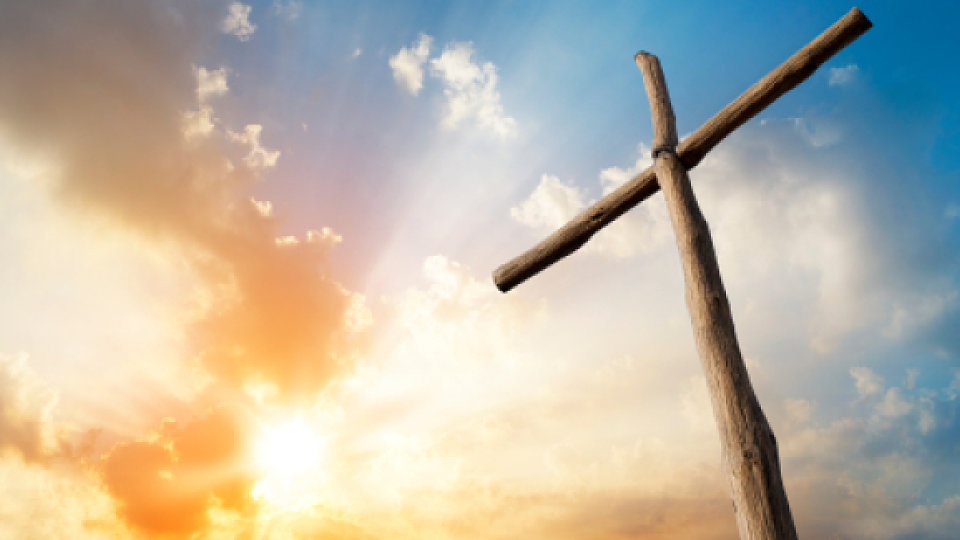No, Everything Doesn't Happen for a Reason

“Everything happens for a reason,” he said as he reflected upon the terrible events that had occurred in Newtown, Connecticut. I suppose these words were meant to be comforting. Implicit in them is the idea that there is a grand plan, this horrible tragedy is a part of that plan, and that with time we’ll see and understand the good that was the result of this horrible evil. But, is the shooting of twenty children and their teachers really a part of a grand plan – an essential means to a greater end? This implies that there is a script that has already been written by which the events of our world unfold, one leading to another, until the happy ending is finally reached. In this picture of reality, we’re all characters in the novel that God is writing. We merely do or experience what the Author intends. Here’s why I think this is wrong: If everything happens for a reason, according to God’s plan, then the plot to kill twenty children and six teachers and administrators did not originate in the mind of Adam Lanza, but in the mind of God. God intended this, and put it in the mind of Adam Lanza, because it was a part of God’s plan. What kind of “god” intends children to be killed? What greater good could possibly justify the horrible pain their parents must endure? If “everything happens for a reason,” then every act of evil is ultimately God’s doing. Rape, abuse of children, terrorism, the cruelty human beings perpetrate on one another – are all of these really the will of God?This line of reasoning does two things: It removes human responsibility for evil acts, and it makes God culpable for all evil, having intended it to happen. What kind of monster wills all the horrible events in this world, even if for some greater good? Can the ends really justify the means when the means are the murder of a child or the many other forms evil takes in our world?A more accurate assessment is that the evil that happens in this world is not God’s will and is, in fact, a thwarting of his plan. The Bible calls us to love our neighbors, and to do justice and love kindness, not to indiscriminately kill one another. So how do we explain the kind of evil we saw in Connecticut last week? I suspect that here theists and atheists would agree: Human beings have within them the ability to choose evil or good. We wake up each day facing the age-old struggle of good and evil. In some situations mental illness clouds our judgment.Our struggle with good and evil is manifest in a hundred small decisions each day: Will I text and drive, or leave my phone alone until I get where I’m going? Will I gossip about my co-worker or choose to speak about them the way I hope they would speak about me? Will I act upon my worst impulses or my best? Will I show mercy or seek revenge? Will I bless or curse? Will I live only for myself, or will I love my neighbor as myself?The senseless killing of twenty children and their teachers and principal at Sandy Hook Elementary School was not part of God’s grand plan. It was a thwarting of God’s plan. It was the misuse of human freedom. Why then did God not stop it? For the same reason he does not stop you from texting and driving, or living selfish and self-absorbed lives; the same reason he allows us to ignore the poor, or to cheat on our spouses or to abuse power: Because the freedom to make choices is an essential part of what it means to be human. Yet God has not left us entirely to our own devices. God seeks to influence humanity. This is at the heart of the Christmas story. It is the story of light coming into the darkness, of a Savior to show us the way, of light overcoming the darkness, of God’s work to save the world. The Christmas story ends at a cross and an empty tomb. God becomes subject to the evil humanity is capable of. He is tortured and hung on a cross and dies there in agony. But this is not the end of the story. On the third day, the tomb is empty, and Christ is risen. Easter declares that death and hate and evil will never have the final word. Even now, in Newtown, Connecticut, evil will not prevail. Every act of evil produces a thousand acts of goodness. We’ve seen this in the stories coming out of Connecticut. We’ve felt it in our own hearts. This terrible tragedy touched a nation, and aroused kindness and compassion in our hearts. While some misuse their freedom to perpetrate evil, millions respond by feeling compelled to use their freedom to do good. Everything doesn’t happen for a reason, if by this we mean evil is a part of God’s plan. But God does ensure that evil will not prevail and that light will always, ultimately, overcome the darkness. If we follow God’s lead, our work is to push back the darkness. ~~~ For more information, read Why? Making Sense of God's Will and watch or listen to my latest sermon, "The Benedictus," in which I discuss the Newtown tragedy. The video is below and the audio may be downloaded here.